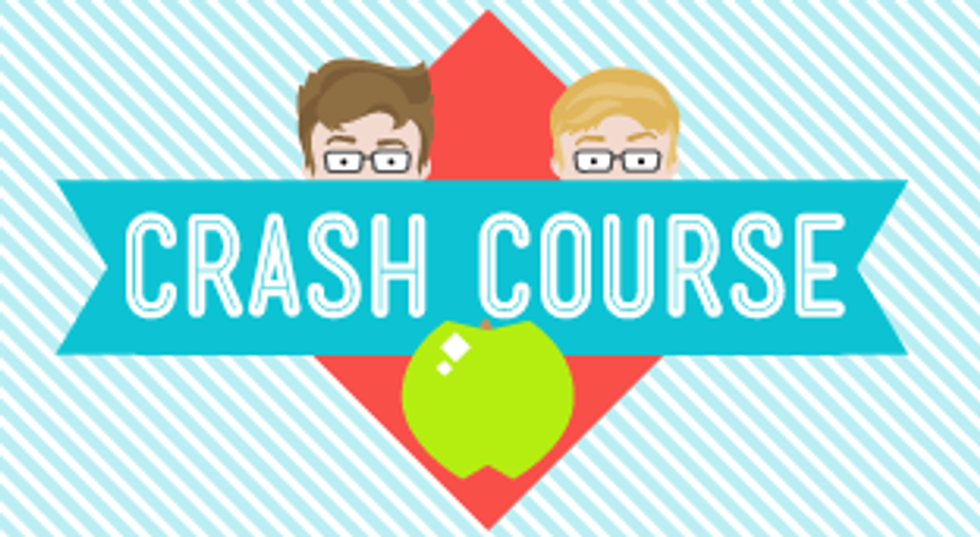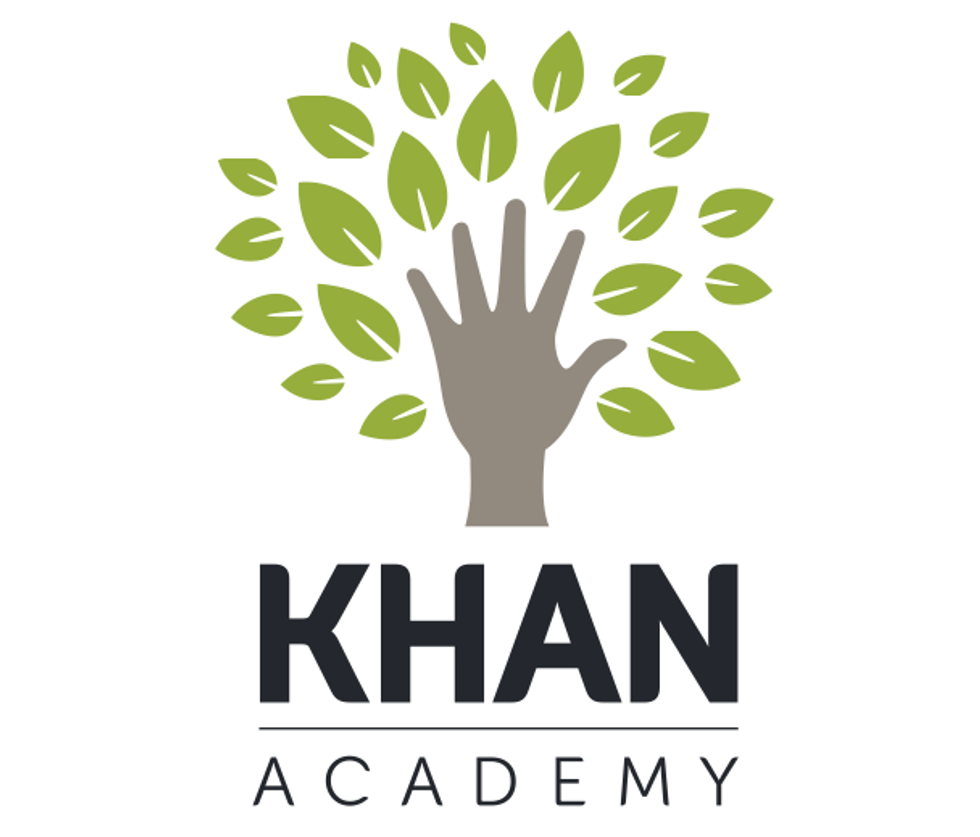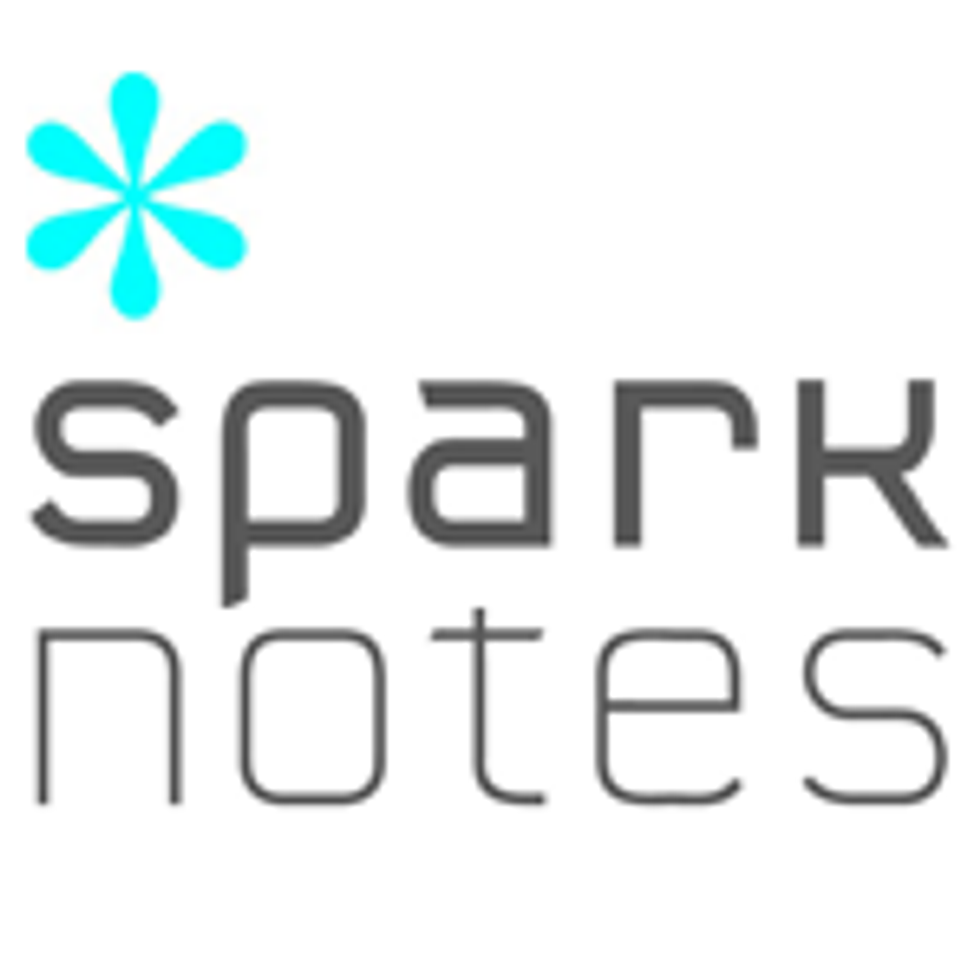When stepping outside into the hot, humid and miserable sunshine is still too much for my computer addled brain to handle, I like to pretend I'm doing something useful by learning new things. College is expensive, but learning doesn't have to be. Here are seven free online resources to help you learn. It's good for keeping your brain from shriveling up in this summer and, come this fall, a treasure trove of free help for your more challenging classes.
1. Crash Course
 Rapid fire and surprisingly fun, the educational YouTube channel, Crash Course, boasts whole courses in subjects ranging from history to literature and anatomy to chemistry in crossed animation and video lecture form. I watched half of the psychology lectures to supplement my freshman psychology class. I was entertained and earned an easy A. Just for fun, I've sampled from several of the subjects they offer and can promise they'll deliver on substance and a lighthearted awareness of pop culture to keep things interesting.
Rapid fire and surprisingly fun, the educational YouTube channel, Crash Course, boasts whole courses in subjects ranging from history to literature and anatomy to chemistry in crossed animation and video lecture form. I watched half of the psychology lectures to supplement my freshman psychology class. I was entertained and earned an easy A. Just for fun, I've sampled from several of the subjects they offer and can promise they'll deliver on substance and a lighthearted awareness of pop culture to keep things interesting.
2. Khan Academy
 While this one isn't as outright fun as some other things on the list, Khan Academy offers videos on many subjects that you can watch and rewatch at your own pace. Does your calculus professor breeze over a whole chapter, or do you need to brush up on some English grammar before a test? There's a whole unit of videos explaining the concepts and solving example problems. Also, Khan Academy makes quality instruction available to struggling schools and students all across the globe from 11th graders studying for the SAT to a girl's school in a third world country that doesn't have much funding.
While this one isn't as outright fun as some other things on the list, Khan Academy offers videos on many subjects that you can watch and rewatch at your own pace. Does your calculus professor breeze over a whole chapter, or do you need to brush up on some English grammar before a test? There's a whole unit of videos explaining the concepts and solving example problems. Also, Khan Academy makes quality instruction available to struggling schools and students all across the globe from 11th graders studying for the SAT to a girl's school in a third world country that doesn't have much funding.
3. Sparknotes
 Am I the only one having flashbacks to high school? Seriously, Sparknotes has study guides for far more than just Shakespeare and classic literature. Check out the range of subjects available and learn something.
Am I the only one having flashbacks to high school? Seriously, Sparknotes has study guides for far more than just Shakespeare and classic literature. Check out the range of subjects available and learn something.
4. Duolingo

If you're part of the majority of Americans who are monolingual (or merely have a wish to know another language), then Duolingo is here to help. The website has self-paced lessons that deliver grammar and vocabulary right to your computer. Most importantly, the active community of other native speakers and fellow learners are what really make Duolingo worth it. You can engage native speakers in conversation in their language for practice, help out other people learning English, make friends, earn points and reach a level of fluency enough to hold a decent conversation.
5. Codecademy

The days of putting "Microsoft Office skills" on a resume are over. Everybody has those; potential employers now take it as a given. Want to stand out of the crowd? Go a step further and learn a bit of coding. I've only ever poked around on codecademy, but I can tell you that it offers lessons and gives you little projects to try on your own to really master the material.
6. LibriVox
 An Audible subscription is too expensive for me, so LibriVox is the next best thing. It offers a vast range of audio-book titles, all in the public domain for free and legal listening and download. Anyone with a microphone can read, so you might not like every narrator. It's still a great way to "read" classic books.
An Audible subscription is too expensive for me, so LibriVox is the next best thing. It offers a vast range of audio-book titles, all in the public domain for free and legal listening and download. Anyone with a microphone can read, so you might not like every narrator. It's still a great way to "read" classic books.
7. Open Courses
 It always shocks me how few people know about Open Courses when it's such a great resource. In short, an open course is the audio or video recording of lectures by a college or university for public education and use. Many of them include syllabi and a reading list, so you can better follow along with the in-lecture material. I've especially enjoyed Yale's philosophy course on death and history course, "Epidemics in Western Society Since 1600." There's no one place to find open courses, but this masterlist is a good place to start.
It always shocks me how few people know about Open Courses when it's such a great resource. In short, an open course is the audio or video recording of lectures by a college or university for public education and use. Many of them include syllabi and a reading list, so you can better follow along with the in-lecture material. I've especially enjoyed Yale's philosophy course on death and history course, "Epidemics in Western Society Since 1600." There's no one place to find open courses, but this masterlist is a good place to start.












 Photo by
Photo by  Photo by
Photo by  Photo by
Photo by 


















